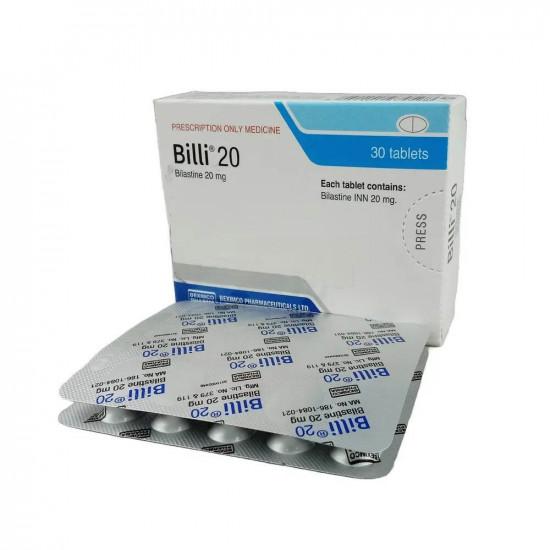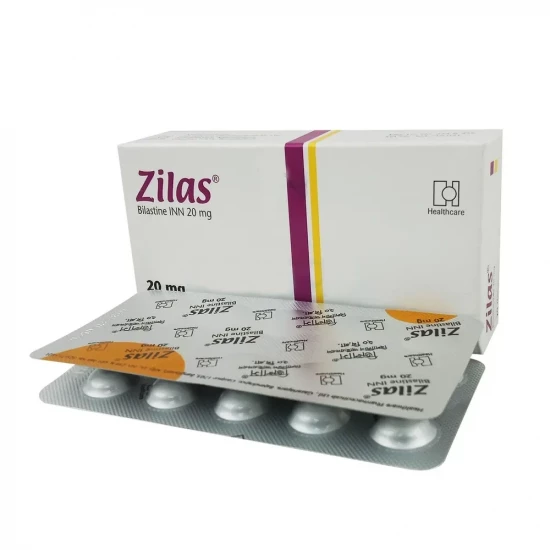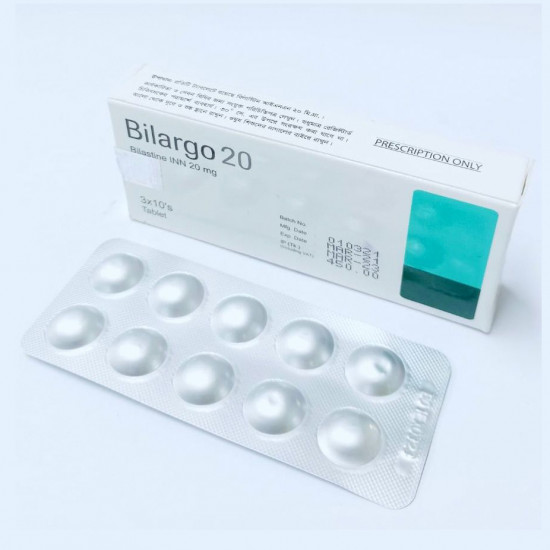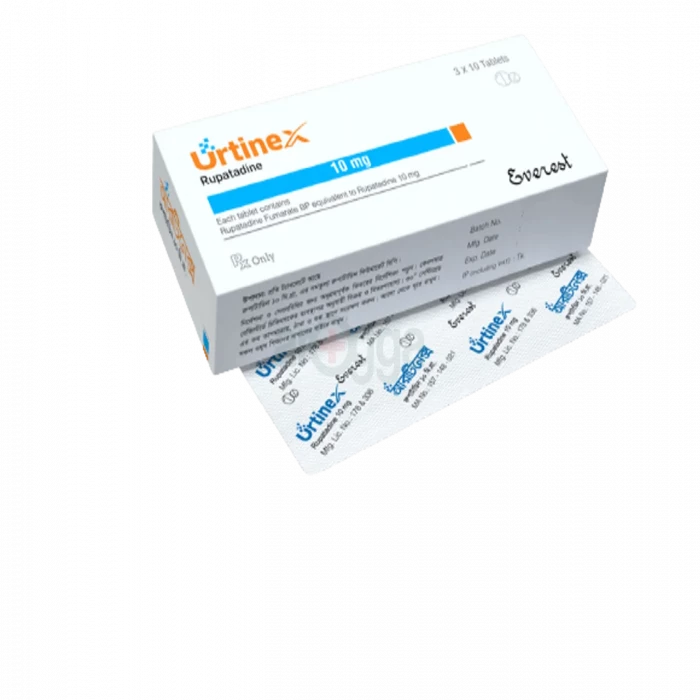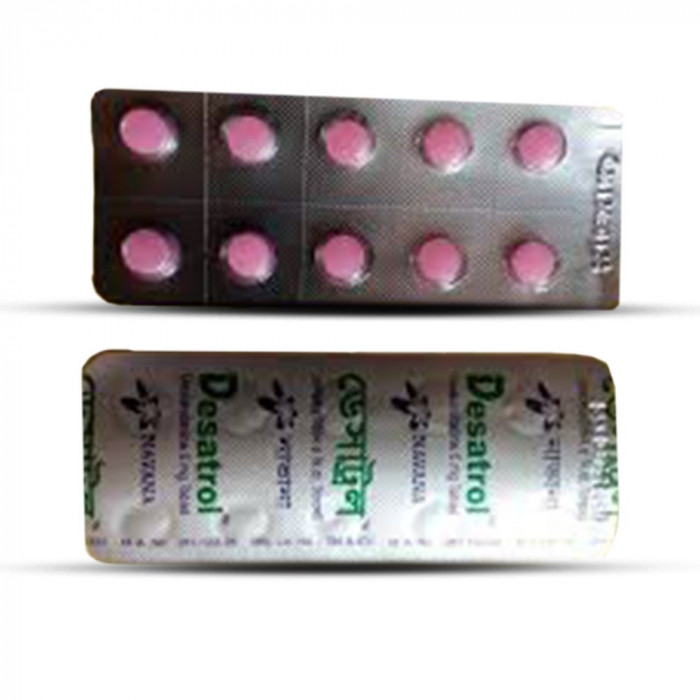
✔ 100% Authentic Product
👁️ Currently Viewing 3248
Generic: Desloratadine
Manufacturer/Distributor: Navana
Discount
Price: ৳ 2
MRP:
৳
2.51
5%
Off

100% Genuine Products, Guaranteed

Safe & Secure Payments, Always

Fast, Secure & Efficient Delivery

Proper Packaging
 Cash on Delivery - All over Bangladesh
Cash on Delivery - All over Bangladesh Regular Delivery - 12-24 Hours, Dhaka City* Charge Tk.39-59
Regular Delivery - 12-24 Hours, Dhaka City* Charge Tk.39-59 Regular Delivery - 24-48 Hours, Other Cities* Charge Tk.99-110
Regular Delivery - 24-48 Hours, Other Cities* Charge Tk.99-110
 ফ্রি ডেলিভারিঃ - ৯৯৯ টাকা+ অর্ডারে, ঢাকা
শহরে
ফ্রি ডেলিভারিঃ - ৯৯৯ টাকা+ অর্ডারে, ঢাকা
শহরে ফ্রি ডেলিভারিঃ - ২৯৯৯ টাকা+ অর্ডারে, ঢাকার
বাহিরে
ফ্রি ডেলিভারিঃ - ২৯৯৯ টাকা+ অর্ডারে, ঢাকার
বাহিরে
100% Genuine Products, Guaranteed
Safe & Secure Payments, Always
Fast, Secure & Efficient Delivery
Proper Packaging
 Cash on Delivery - All over Bangladesh
Cash on Delivery - All over Bangladesh Regular Delivery - 12-24 Hours, Dhaka City* Charge Tk.39-59
Regular Delivery - 12-24 Hours, Dhaka City* Charge Tk.39-59 Regular Delivery - 24-48 Hours, Other Cities* Charge Tk.99-110
Regular Delivery - 24-48 Hours, Other Cities* Charge Tk.99-110 ফ্রি ডেলিভারিঃ - ৯৯৯ টাকা+ অর্ডারে, ঢাকা
শহরে
ফ্রি ডেলিভারিঃ - ৯৯৯ টাকা+ অর্ডারে, ঢাকা
শহরে ফ্রি ডেলিভারিঃ - ২৯৯৯ টাকা+ অর্ডারে, ঢাকার
বাহিরে
ফ্রি ডেলিভারিঃ - ২৯৯৯ টাকা+ অর্ডারে, ঢাকার
বাহিরে
✅ Description:
Introduction
Desatrol belongs to a group of medicines called antihistamines. It is used in the treatment of various allergic conditions. It relieves symptoms like itching, swelling and rashes. Desatrol may be taken with or without food. The dose may vary depending on what you are taking it for. Take it as it has been prescribed by your doctor. You may need this medicine only on days you have symptoms, or you may need to take it every day to prevent symptoms from happening. If you stop taking it earlier than advised, your symptoms may come back. This medicine is generally very safe. Dizziness may occur in some cases. This is usually mild and go away after a couple of days as your body adjusts. Consult your doctor if it persists or worry you. Before taking it, you should tell your doctor if you have any problems with your liver or kidneys or with your heart as antihistamines can cause your heart to beat faster. Pregnant or breastfeeding women should also consult with their doctor before taking it. Avoid drinking alcohol as it can cause excessive drowsiness with this medicine. It usually does not impair your ability to drive, but you should not drive if it makes you feel sleepy or dizzy.
Uses of Desatrol
- Allergic conditions
Side effects of Desatrol
Common
- Sleepiness
How to use Desatrol
Take this medicine in the dose and duration as advised by your doctor. Swallow it as a whole. Do not chew, crush or break it. Desatrol may be taken with or without food, but it is better to take it at a fixed time.
How Desatrol works
Desatrol is an antihistaminic medication. It treats allergy symptoms such as itching, swelling, and rashes by blocking the effects of a chemical messenger (histamine) in the body.
What if you forget to take Desatrol?
If you miss a dose of Desatrol, take it as soon as possible. However, if it is almost time for your next dose, skip the missed dose and go back to your regular schedule. Do not double the dose.

Quick Tips
- Your doctor has prescribed Desatrol to help relieve allergy symptoms such as itching, swelling, and rashes.
- As compared to other similar medications, it is much less likely to make you feel sleepy.
- Be cautious while driving or doing anything that requires concentration as it can cause dizziness and sleepiness.
- Do not drink alcohol while taking this medication as it may cause increased sleepiness.
- Stop taking Desatrol at least three days before taking an allergy test as it can affect the test results.
Brief Description
Indication
Itching, Sneezing, Watery eyes, Allergic conditions, Runny nose, Hives, Skin rash, Common cold
Administration
May be taken with or without food.
Adult Dose
Oral Allergic conditions Adult: 5 mg once daily. Hepatic Impairment: Initially, 5 mg every other day.
Child Dose
Oral Allergic conditions Child: 12 years or over : 5 mg once daily. Child 6-11 years : 2.5 mg once daily. Child 12 months-5 years : 1.25 mg (2.5 ml syrup) once daily. Child 6 months-11 months : 1 mg (2 ml syrup) once daily.
Renal Dose
Initially, 5 mg every other day.
Contraindication
Hypersensitivity.
Mode of Action
Desloratadine is a long-acting, tricyclic, non-sedating, selective peripheral histamine H1-receptor antagonist which inhibits the release of pro-inflammatory mediators from human mast cells and basophils.
Precaution
Severe renal or hepatic failure; children <6 mth, elderly, epilepsy, pregnancy and lactation. Lactation: excretion in milk unknown/not recommended
Side Effect
>10% Headache (14%),Fever (12%),Irritability (12%),Diarrhea (15%),Upper respiratory infection (11%),Cough (11%) 1-10% Dizziness (4%),Somnolence (2%),Dizziness (4%),Fatigue (2%),Erythema (2%),Macupopular rash (3%),Dysmenorrhea (2%),Urinary tract infection (4%),Bronchitis (6%),Epistaxis (3%)
Pregnancy Category Note
Pregnancy The limited available data in pregnant women are not sufficient to inform a drug-associated risk for major birth defects and miscarriage; there are no adequate and well-controlled studies in pregnant women Reproductive potential There are no data available on human infertility associated with desloratadine Female: There were no clinically relevant effects of desloratadine on female fertility in rats Male: A male specific decrease in fertility occurred at an oral desloratadine dose of ?12 mg/kg in rats (approximately 65 times the RHD); male fertility was unaffected at a desloratadine dose of 3 mg/kg (approximately 10 times the RHD) Lactation Desloratadine and pseudoephedrine both pass into breast milk; there are no sufficient data on effects of desloratadine on breastfed infant or effects of desloratadine on milk production The decision should be made whether to discontinue nursing or to discontinue drug, taking into account developmental and health benefits of breastfeeding, the nursing mother’s clinical need, and any potential adverse effects on breastfed infant from therapy or from underlying maternal condition
Interaction
Potential increase in plasma concentrations w/ drugs affecting hepatic microsomal enzymes (e.g. azithromycin, cimetidine, erythromycin, fluoxetine, ketoconazole).
⚠️Disclaimer:
At ePharma, we’re committed to providing accurate and accessible health information. However, all content is intended for informational purposes only and should not replace medical advice from a qualified physician. Please consult your healthcare provider for personalized guidance. We aim to support, not substitute, the doctor-patient relationship.








